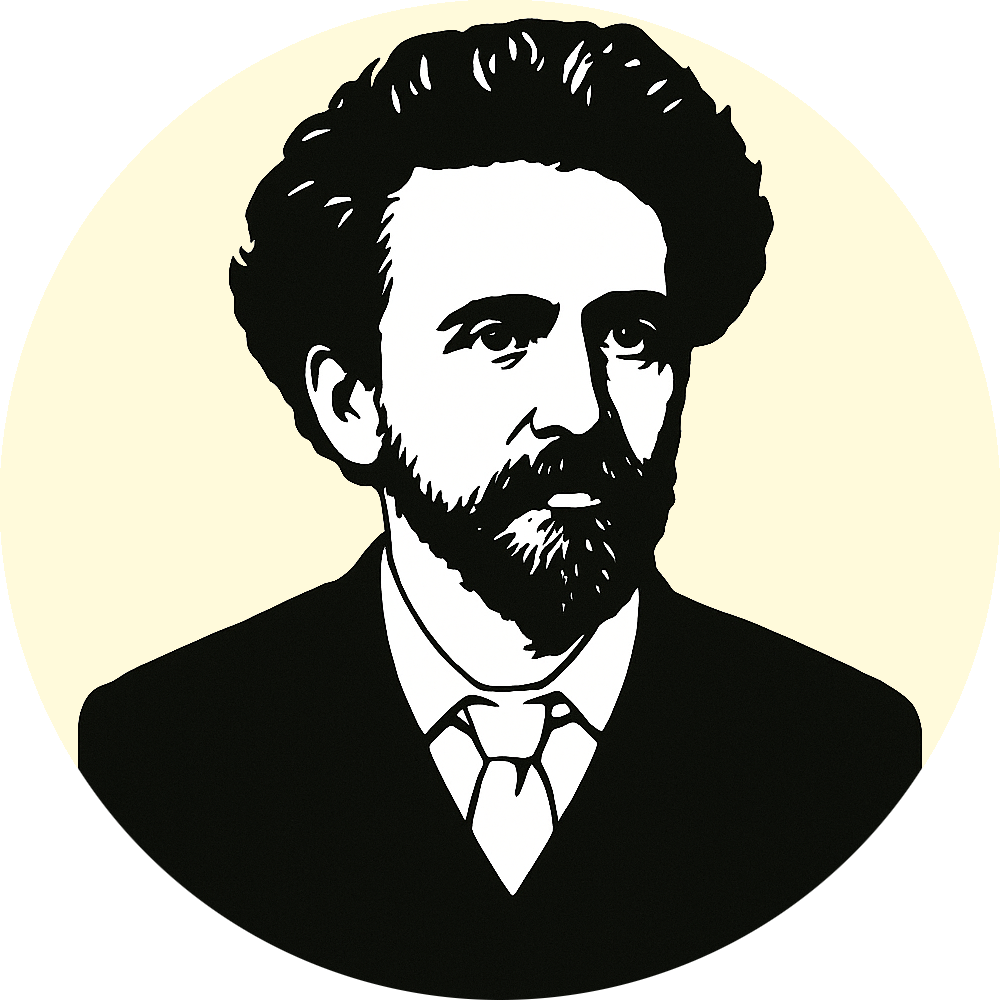
Philosopher of Inner Discipline
"As a man thinketh in his heart, so is he."
James Allen was born in England in 1864. After facing personal hardships, including the loss of his father and financial difficulty, Allen turned inward. He became a student of spiritual classics, Eastern philosophy, and moral self-cultivation. In 1903, he published As a Man Thinketh, a small book that would influence generations with its message of quiet strength and inner responsibility.
Allen’s philosophy is grounded in moral clarity. He taught that our thoughts shape our character, and our character shapes our destiny. Rather than sensational promises of instant change, his teachings promote a calm, persistent cultivation of virtue, peace, and right thinking. The outer world, to Allen, is a perfect mirror of the inner life.
His central insight: Thought is the seed of destiny. Every act, circumstance, and outcome begins as a mental impulse. To change your life, change your thinking—not just on the surface, but at the level of intention, belief, and feeling. Allen's path is not loud. It is steady, humble, and profound.
James Allen believed that virtue is the foundation of all real success. He rejected the idea of blaming fate or fortune. “Men are anxious to improve their circumstances, but are unwilling to improve themselves,” he wrote. His work is a call to personal accountability—not through shame, but through the quiet dignity of self-mastery.
“The Garden of the Mind” — Allen taught that we are each the gardener of our own soul. Just as weeds must be removed to make room for flowers, so must selfishness, resentment, and fear be uprooted to make room for peace, love, and strength. This mental cultivation is daily, deliberate, and sacred.
To Allen, despair results from a disordered mind. The remedy is not escape—but cultivation. “He who has conquered weakness, and has put away all selfish thoughts, belongs neither to oppressor nor oppressed.”
He taught that peace is the reward of right thinking. “Calmness of mind is one of the beautiful jewels of wisdom.” To still anxiety, we must build habits of truth, discipline, and inward watchfulness.
Allen reminded us that the soul grows not through control, but through surrender to truth. “Men do not attract that which they want, but that which they are.” Release comes through alignment—not force.
Grief, he taught, softens when one sees life as a cycle of becoming. “He who cherishes a beautiful vision... will one day realize it.” Loss becomes bearable when we live for the good that never dies.
To Allen, resentment is poison to the soul. Forgiveness is not a favor—it is a necessity for peace. “You cannot travel within and stand still without.”
He did not focus on riches, but on worth. “The man who does not shrink from self-crucifixion can never fail to accomplish the object upon which his heart is set.” Success follows integrity—not greed.
Allen viewed work as sacred. Right thinking leads to right action. “A man is literally what he thinks, his character being the complete sum of all his thoughts.” Align your work with inner truth.
True abundance is harmony. Allen taught that “good thoughts bear good fruit.” Cultivate spiritual wealth—and material stability follows in due course.
He taught that love arises naturally in the soil of virtue. “He who has conquered self has become a presence of peace.” Loving relationships are the reflection of inner grace.
To Allen, personal loss can refine the soul. “Good thoughts and actions can never produce bad results.” We must rise—not by seeking someone new—but by becoming someone true.
Confidence is not assertion—it is character. Allen wrote: “A noble and God-like character is not a thing of favor or chance, but is the natural result of continued effort in right thinking.”
Allen honored the seeker—but called them inward. “The soul attracts that which it secretly harbors.” The path is walked in silence, service, and self-honesty.
Stillness is not escape—it is arrival. “The calm man, having learned how to govern himself, knows how to adapt himself to others.” Peace is cultivated—not granted.
The secret, to Allen, is responsibility. “A man only begins to be a man when he ceases to whine and revile.” We create our world through the thoughts we nurture.
Choose your class and receive your first message now.